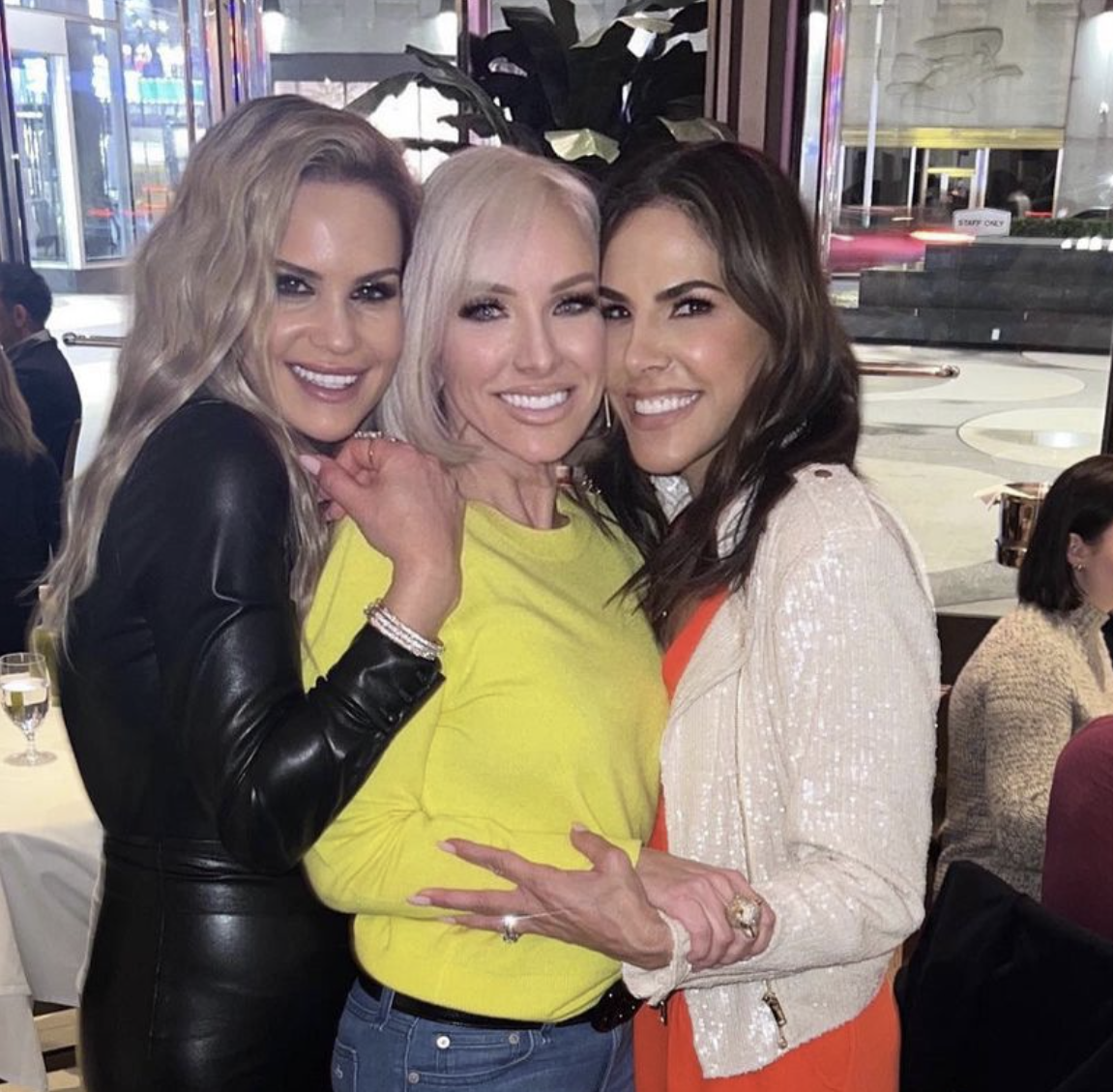
Jackie Goldschneider’s revealing account of her anorexia battle through these lenses, this article aims to shed light on society’s harmful obsession with body image while emphasizing the significance of compassion, understanding, and support for those struggling with eating disorders. The profound impact of societal pressures on body image cannot be underestimated.
Jackie Goldschneider’s revelation of her battle with anorexia. Society, with its relentless pursuit of an idealized and narrow definition of beauty, exerts tremendous pressure on individuals to conform to unrealistic standards. This unyielding expectation creates a tumultuous environment where self-worth becomes intrinsically tied to physical appearance. The media plays a significant role in perpetuating these societal pressures, bombarding individuals with images that depict an unattainable perfection. The constant exposure to these images fosters feelings of inadequacy and fuels the desire for an ideal body shape, leading many like Goldschneider down a treacherous path.

Societal pressures surrounding body image are deeply ingrained within cultural norms. The relentless scrutiny faced by women in particular is exacerbated by the objectification and sexualization of their bodies. Women are often judged solely based on their physical attributes rather than their intellect or achievements, reinforcing the belief that one’s worth is solely determined by external appearances. This distorted perception not only affects young girls growing up but also impacts women throughout their lives, leaving them vulnerable to developing unhealthy relationships with food and their bodies.
The pervasive influence of social media compounds the issue even further. Platforms such as Instagram and TikTok have become breeding grounds for comparison and self-doubt. Endlessly scrolling through carefully curated feeds filled with seemingly flawless individuals can create a distorted reality where one’s own imperfections are magnified. This constant exposure to filtered versions of reality can lead to feelings of inadequacy and fuel a vicious cycle of striving for unattainable perfection.
The consequences of succumbing to societal pressures surrounding body image can be devastating. Individuals like Goldschneider who battle disorders such as anorexia face severe health risks, both physically and mentally. The obsession with achieving a specific body shape often leads to extreme dieting, excessive exercise, and in some cases, self-harm. The toll on mental well-being is equally significant, as individuals constantly battle negative self-image and feelings of worthlessness. Jackie decided to put pen to paper and write a memoir based on her fight against anorexia. In a recent interview with “Page Six” Jackie describes her journey as “It all came to me in a flash,” and “Once I started that recovery process, all of these secrets felt like poison inside me. And I had to get rid of them. I was like, ‘If I put it all down in a book, I can get them out of me.’ It was therapeutic.” Jackie 46 continued to say that her decades-long war with anorexia and being in recovery in “The Weight of Beautiful” (Gallery Books), was a “labor of love” always dreamed of becoming an author, the talented lawyer turned journalist has now reached another milestone with the release of her new book. The “Housewives of New Jersey” star added “I thought I would just die with those secrets,”
I can’t believe that this thing that I thought would eventually kill me turned into this amazing book that will help others. I’m really proud of it.
As a teen, Goldschneider struggled with her weight being classified as obese also felt “tortured because of it.” and added “I remember a lot of shame. People in my high school were not nice to me. I was an outsider.” Jackie’s family moved from Staten Island to New Jersey and felt even more isolated than before. Food became a comfort to the lonely teen and Jackie now says that “My mom worked like an animal and she was not home a lot,” her mother ran a busy IT business in New York City. “And when she was home, she would cook enormous amounts of food. She would get joy out of seeing us eat all of it.”

Jackie later thought there was “some weird malicious” intent behind her mom’s constant need to feed her. Her grandparents were Holocaust survivors and realized later in life that “they practically worshiped food during World War II as food was scarce in their society. In a related interview with “The New York Post” Goldschneider revealed that “All of these secrets felt like poison inside me and I had to get rid of them.” Jackie has also realized that “When I started my recovery, I did have a talk with her about how she taught me to overeat, and she explained to me the origins of how food was so scarce for her [family],” and
“My mom spent all these years thinking … food was just a gift from God. And so that was her mentality, like, ‘You find food, just eat it all.’” At the age of 17 Jackie was “chastised” by a doctor for her weight and afterward dismissed her mother’s view on food. Jackie said “I was told that I wouldn’t have any fun in college if I was fat. I remember my doctor being very disappointed in me. I felt so ashamed of myself,” she remembered. “The minute he told me that I shouldn’t go to college fat, my head connected being fat with, ‘I’m never going to have fun in my whole life if I stay fat.’ It almost became this emergency for me to lose weight, like I didn’t have another minute to spare.” The doctor suggested Weight Watchers; it felt like she “found God” at her first WW meeting. “I was looking at this booklet and I was like, ‘This is it,’” she said. “I was never not on a diet another day in my life.
The impact of societal pressures on body image is far-reaching and deeply entrenched within our culture. The relentless pursuit of an idealized beauty standard perpetuated by the media, cultural norms, and social media platforms creates an environment where individuals are constantly bombarded with unattainable ideals. This can lead to detrimental consequences for both physical health and mental well-being. Jackie Goldschneider’s courageous revelation serves as a stark reminder of the urgent need for society to challenge these pressures and foster a more inclusive and accepting environment for all body types. The journey of support and recovery is of utmost importance when it comes to battling anorexia, as exemplified by Jackie Goldschneider’s courageous revelation. Anorexia, a devastating mental illness characterized by extreme weight loss and distorted body image, demands a multifaceted approach that addresses the physical, emotional, and psychological aspects of the individual. In this arduous expedition towards health and well-being, support becomes an indispensable lifeline for those grappling with this unforgiving disorder.
Support in the context of anorexia takes various forms. Firstly, it entails having a strong network of family and friends who offer unwavering encouragement and understanding throughout the recovery process. These individuals play a pivotal role in combating feelings of isolation that often accompany anorexia. Their presence serves as a beacon of hope amidst the darkness that engulfs those afflicted with this illness.
These experts provide invaluable guidance tailored to each individual’s unique circumstances. The recovery journey from anorexia is no easy feat; it necessitates resilience and determination to overcome deeply ingrained patterns of self-destruction. It is during this challenging odyssey that support acts as a vital source of motivation for individuals like Jackie Goldschneider. By surrounding herself with compassionate individuals who comprehend her struggles firsthand or through their expertise in treating eating disorders, she can draw strength from their experiences whilst also benefiting from their professional knowledge.
The presence of a robust network of family, friends, and professionals provides individuals like Jackie Goldschneider with the necessary tools to navigate through the complexities of this disorder. Through their unwavering encouragement, understanding, and expertise, these supporters create an environment conducive to healing and growth. By shedding light on her own battle with anorexia, Jackie Goldschneider has not only raised awareness about the importance of support but has also inspired others to embark on their recovery journey with newfound hope and determination.

Goldschneider’s journey also highlights the importance of support in overcoming an eating disorder. Recovery from anorexia is not a solitary process; it requires a strong support system consisting of family, friends, therapists, and medical professionals. Without this network of support, individuals may find it difficult to navigate their recovery journey successfully. It is crucial for society to recognize the significance of providing resources and assistance for those struggling with eating disorders. By destigmatizing mental health issues and increasing awareness about the complexities surrounding anorexia, we can create a more compassionate environment that encourages individuals to seek help without fear or shame.
Keep fighting the good fight Jackie Goldschneider!
Photos Instagram